A$130.3
How to buy shares in Rio Tinto
To buy shares listed in Australia such as Rio Tinto, you'll need to sign up to a broker with access to the ASX. Our table can help you compare share trading platforms and choose. Then follow these steps.
-
Open and fund your brokerage account. Complete an application with your personal and financial details, including your ID and tax file number. Fund your account with a bank transfer, PayPal or debit card.
-
Search for Rio Tinto. Find the share by name or ticker symbol: RIO. Research its history to confirm it's a solid investment against your financial goals.
-
Purchase now or later. Buy today with a market order or use a limit order to delay your purchase until Rio Tinto reaches your desired price. Look into dollar-cost averaging to spread out your risk, which smooths out buying at consistent intervals and amounts.
-
Decide on how many to buy. At today's price, weigh your budget against a diversified portfolio that can minimise risk through the market's ups and downs.
-
Check on your investment. Congratulations, you own a part of Rio Tinto. Optimise your portfolio by tracking how your stock and the business performs with an eye on the long term. You may be eligible for dividends and shareholder voting rights on directors and management that affect your stock.
Our top pick for
Best for beginner
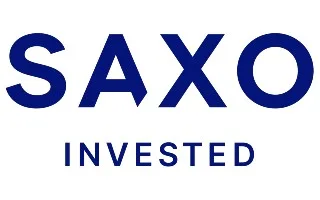
Our top pick for
Education & learning

Our top pick for
Australian stocks
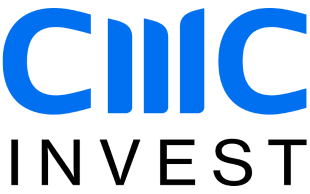
Rio Tinto stock price (ASX:RIO)
Use our graph to track the performance of RIO stocks over time.Rio Tinto shares at a glance
| 52-week range | $98.983 - $132.85 |
|---|---|
| 50-day moving average | $123.8448 |
| 200-day moving average | $121.8701 |
| Target price | $135.43 |
| PE ratio | 13.5335 |
| Dividend yield | $4.349 (6.07%) |
| Earnings per share (TTM) | $9.56 |
Compare share trading platforms
Is it a good time to buy Rio Tinto stock?
The technical analysis gauge below displays real-time ratings for the timeframes you select. However, this is not a recommendation. It represents a technical analysis based on the most popular technical indicators: Moving Averages, Oscillators and Pivots. Finder might not concur and takes no responsibility.
Rio Tinto price performance over time
Historical closes compared with the last close of A$129.38
| 1 week (2024-04-18) | -1.15% |
|---|---|
| 1 month (2024-03-26) | 6.56% |
| 3 months (2024-01-25) | -2.45% |
| 6 months (2023-10-26) | 9.95% |
| 1 year (2023-04-26) | 15.58% |
|---|---|
| 2 years (2022-04-26) | 18.96% |
| 3 years (2021-04-26) | 5.61% |
| 5 years (2019-04-26) | 32.53% |
Is Rio Tinto under- or over-valued?
Valuing Rio Tinto stock is incredibly difficult, and any metric has to be viewed as part of a bigger picture of Rio Tinto's overall performance. However, analysts commonly use some key metrics to help gauge the value of a stock.
Rio Tinto's P/E ratio
Rio Tinto's current share price divided by its per-share earnings (EPS) over a 12-month period gives a "trailing price/earnings ratio" of roughly 14x. In other words, Rio Tinto shares trade at around 14x recent earnings.
That's relatively low compared to, say, the P/E ratio for the ASX over the 12 months to December 2019 (32.14). The low P/E ratio could mean that investors are pessimistic about the outlook for the shares or simply that they're under-valued.
Rio Tinto's EBITDA
Rio Tinto's EBITDA (earnings before interest, taxes, depreciation and amortisation) is $19.5 billion (£10.2 billion).
The EBITDA is a measure of a Rio Tinto's overall financial performance and is widely used to measure stock profitability.
Rio Tinto financials
| Revenue TTM | $54 billion |
|---|---|
| Operating margin TTM | 25.59% |
| Gross profit TTM | $21.3 billion |
| Return on assets TTM | 9.28% |
| Return on equity TTM | 18.25% |
| Profit margin | 18.61% |
| Book value | 33.665 |
| Market capitalisation | $210.1 billion |
TTM: trailing 12 months
Rio Tinto's environmental, social and governance track record
Environmental, social and governance (known as ESG) criteria are a set of three factors used to measure the sustainability and social impact of companies like Rio Tinto.
When it comes to ESG scores, lower is better, and lower scores are generally associated with lower risk for would-be investors.
Rio Tinto's total ESG risk score
Total ESG risk: 32.79
Socially conscious investors use ESG scores to screen how an investment aligns with their worldview, and Rio Tinto's overall score of 32.79 (as at 12/31/2018) is pretty weak – landing it in it in the 67th percentile of companies rated in the same sector.
ESG scores are increasingly used to estimate the level of risk a company like Rio Tinto is exposed to within the areas of "environmental" (carbon footprint, resource use etc.), "social" (health and safety, human rights etc.), and "governance" (anti-corruption, tax transparency etc.).
Rio Tinto's environmental score
Environmental score: 13.49/100
Rio Tinto's environmental score of 13.49 puts it squarely in the 5th percentile of companies rated in the same sector. This could suggest that Rio Tinto is a leader in its sector terms of its environmental impact, and exposed to a lower level of risk.
Rio Tinto's social score
Social score: 13.38/100
Rio Tinto's social score of 13.38 puts it squarely in the 5th percentile of companies rated in the same sector. This could suggest that Rio Tinto is a leader in its sector when it comes to taking good care of its workforce and the communities it impacts.
Rio Tinto's governance score
Governance score: 10.92/100
Rio Tinto's governance score puts it squarely in the 5th percentile of companies rated in the same sector. That could suggest that Rio Tinto is a leader in its sector when it comes to responsible management and strategy, and exposed to a lower level of risk.
Rio Tinto's controversy score
Controversy score: 4/5
ESG scores also evaluate any incidences of controversy that a company has been involved in. Rio Tinto scored a 4 out of 5 for controversy – the second-lowest score possible, reflecting that Rio Tinto has a damaged public profile.
Environmental, social, and governance (ESG) summary
Rio Tinto Ltd was last rated for ESG on: 2019-01-01.
| Total ESG score | 32.79 |
|---|---|
| Total ESG percentile | 67.48 |
| Environmental score | 13.49 |
| Environmental score percentile | 5 |
| Social score | 13.38 |
| Social score percentile | 5 |
| Governance score | 10.92 |
| Governance score percentile | 5 |
| Level of controversy | 4 |
Rio Tinto share dividends
Dividend payout ratio: 1.66% of net profits
Recently Rio Tinto has paid out, on average, around 1.66% of net profits as dividends. That has enabled analysts to estimate a "forward annual dividend yield" of 6.07% of the current stock value. This means that over a year, based on recent payouts (which are sadly no guarantee of future payouts), Rio Tinto shareholders could enjoy a 6.07% return on their shares, in the form of dividend payments. In Rio Tinto's case, that would currently equate to about A$4.349 per share.
While Rio Tinto's payout ratio might seem low, this can signify that Rio Tinto is investing more in its future growth.
The latest dividend was paid out to all shareholders who bought their shares by 6 March 2024 (the "ex-dividend date").
Have Rio Tinto's shares ever split?
Rio Tinto's shares were split on a 1.2679:1 basis on 16 June 2009. So if you had owned 1 share the day before the split, the next day you would own 1.2679 shares. This wouldn't directly have changed the overall worth of your Rio Tinto shares – just the quantity. However, indirectly, the new 21.1% lower share price could have impacted the market appetite for Rio Tinto shares which in turn could have impacted Rio Tinto's share price.
Rio Tinto share price volatility
Over the last 12 months, Rio Tinto's shares have ranged in value from as little as $98.983 up to $132.85. A popular way to gauge a stock's volatility is its "beta".
Beta measures a share's volatility in relation to the market. The market (AU average) beta is 1, while Rio Tinto's is 0.654. This would suggest that Rio Tinto's shares are less volatile than average (for this exchange).
Rio Tinto overview
Rio Tinto Group engages in exploring, mining, and processing mineral resources worldwide. The company operates through Iron Ore, Aluminium, Copper, and Minerals Segments. The Iron Ore segment engages in the iron ore mining, and salt and gypsum production in Western Australia. The Aluminum segment is involved in bauxite mining; alumina refining; and aluminium smelting. The Copper segment engages in mining and refining of copper, gold, silver, molybdenum, and other by-products and exploration activities. The Minerals segment is involved in mining and processing of borates, titanium dioxide feedstock, and iron concentrate and pellets; diamond mining, sorting, and marketing; and development projects for battery materials, such as lithium. It also owns and operates open pit and underground mines; and refineries, smelters, processing plants and power, and shipping facilities. Rio Tinto Group was founded in 1873 and is headquartered in London, the United Kingdom.
Stocks similar to Rio Tinto
AMP Ltd Preferred

AUD104.80
ANZ Group Holdings Ltd. Pfd.

AUD103.19
Challenger Ltd Preferred

AUD105.96
Macquarie Bank Ltd Pref
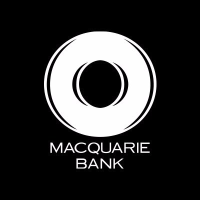
AUD105.81
Macquarie Group Ltd Pref C
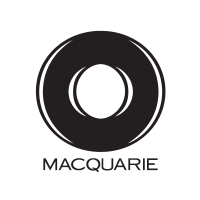
AUD103.02
Macquarie Group Ltd Pref

AUD105.55
Macquarie Group Limited

AUD106.07
Westpac Banking Corp Pref
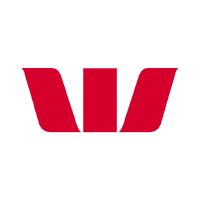
AUD103.18
Rio Tinto in the news

Wall Street Analysts Think Rio Tinto (RIO) Is a Good Investment: Is It?

Rio Tinto PLC's Dividend Analysis
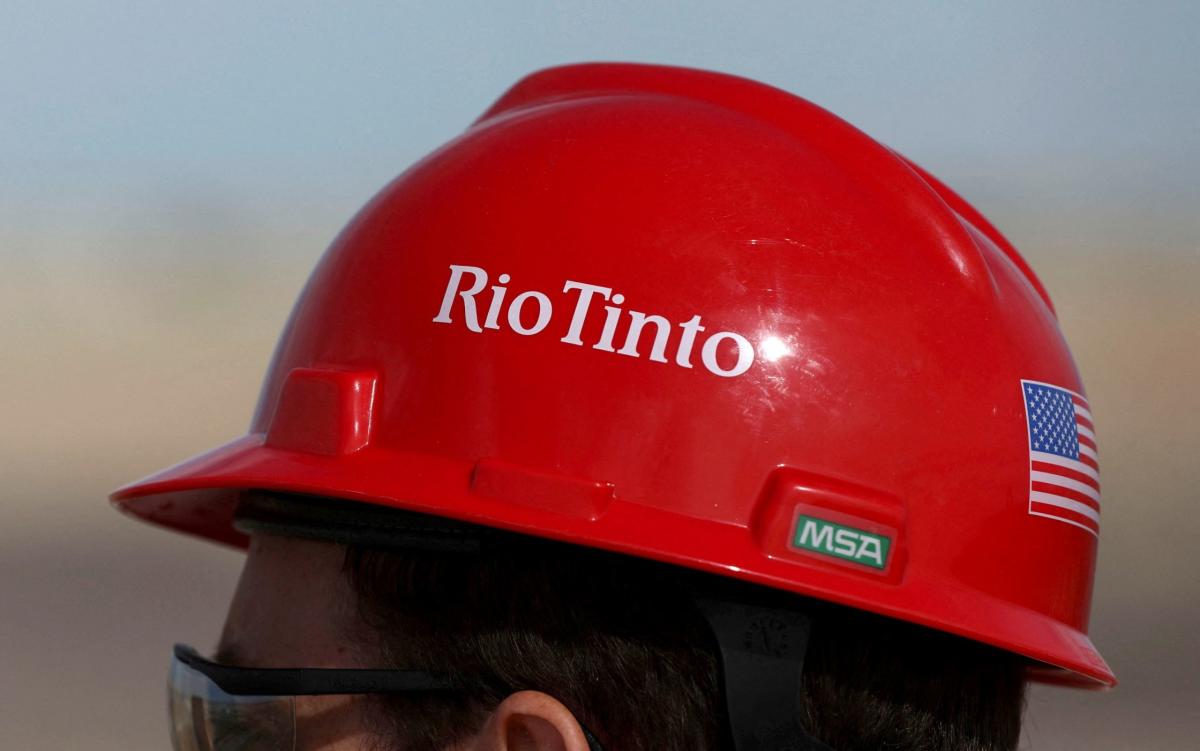
A dirt-cheap share price compensates for economic uncertainty
Past developments
Frequently asked questions
More guides on Finder
-
How to invest in the Sun Silver IPO
Everything we know about the Sun Silver IPO, plus information on how to buy in.
-
How to invest in the Tasmea Limited IPO
Everything we know about the Tasmea Limited IPO, plus information on how to buy in.
-
How to buy Far Northern Resources shares
Steps to owning and managing Far Northern Resources shares.
-
What are the best commodity ETFs on the ASX in 2024?
Commodity ETFs can be used to hedge against inflation. Here's what they do, why they should be on your watchlist and how they can help your portfolio.
-
Best performing stocks on the ASX in 2024 (Updated weekly)
Looking for the best performing stocks in Australia? We update this list weekly.
-
How to buy Gol Linhas Aereas Inteligentes SA ADR (GOL) shares in Australia
Steps to owning and managing Gol Linhas Aéreas Inteligentes SA shares from Australia.
-
Superhero review: ASX and US share trading app
Trade ASX stocks and ETFs with a $2 brokerage fee and a low minimum investment of just $10.
-
The cheapest ETFs on the ASX
These ETFs have the lowest fees on the market, but does that make them the best?
-
Alternatives to CommSec: 7 trading platforms to consider
You've heard of CommSec but how does it stack up to the likes of IG, CMC Invest and other players in the market?
-
Westpac Share Trading Account review
Westpac Share Trading allows you to take control of your investments. Find out if its right for you.
Ask a Question